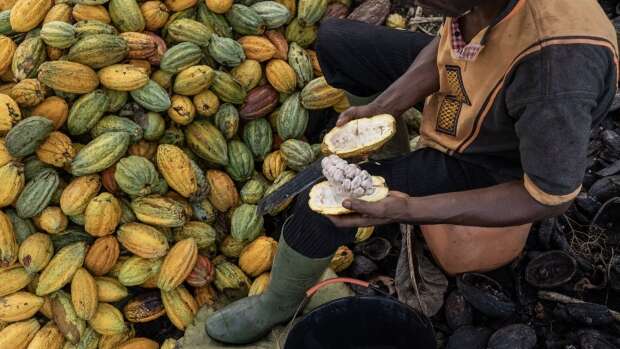Cocoa Purchases Decline Amid Election-Related Delays and Financing Constraints
Cocoa purchases in Ghana plummeted in December 2024, as election-related payment delays from the state marketing board and constrained exporter financing disrupted the market. Farmers and buyers have expressed concerns that these delays could encourage smuggling, according to a Reuters report.
Cocoa prices have surged to record highs over the past year due to subpar harvests in the world’s leading producers, Ivory Coast and Ghana. Despite signs of recovery in the 2024/25 crop season, fears of supply disruptions remain prominent.
This season, Ghana’s marketing board, Cocobod, adopted a new financing model, replacing a three-decade-old system. Under the new approach, global traders and buyers shoulder much of the financing and transportation responsibilities for the cocoa crop, with reimbursement occurring when Cocobod pays for the beans.
However, the Dec. 7 election, which saw former president John Dramani Mahama reclaim the presidency, disrupted the system. Licensed Cocoa Buyers (LBCs) cited uncertainty surrounding the election outcome and concerns over potential unrest as reasons for scaled-back financing.
An LBC management executive told Reuters that his company reduced financing for cocoa purchases during the election period, citing delayed payments from Cocobod and banks’ reluctance to release funding.
Cocobod, however, denied any election-related impact on its payments. Fiifi Boafo, Cocobod’s head of public affairs, acknowledged occasional operational challenges but insisted there was no widespread issue with payment delays.
“We agree that in some instances there are operational challenges, and sometimes the buyers pay farmers a maximum of a week later. But there’s no general issue of nonpayment or pay delays,” Mr Boafo said.
Impact on Cocoa Purchases
Although Ghana does not publicly disclose cocoa purchase data, industry insiders reported a significant decline in December. A source at a major cocoa buying firm stated that purchases were down about 20% compared to November, attributing the drop to election-related uncertainties and depleted financing.
Additionally, beans are reportedly piling up on some plantations due to delayed payments and limited financing, further complicating the situation.
President Mahama, who has pledged to reform the cocoa sector, will face pressure to address these challenges swiftly. Ghana’s cocoa industry remains a critical driver of the economy, and disruptions to the sector could have far-reaching implications.








